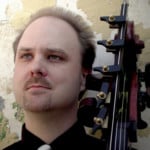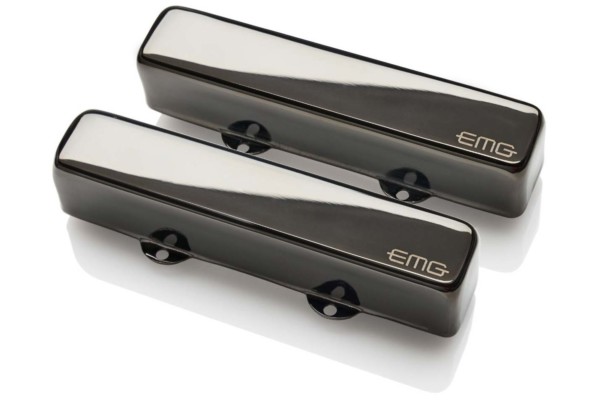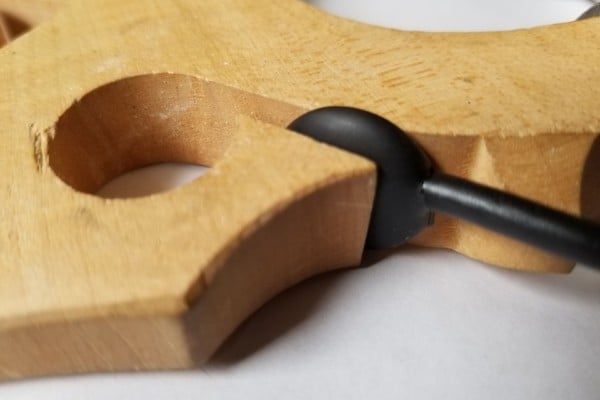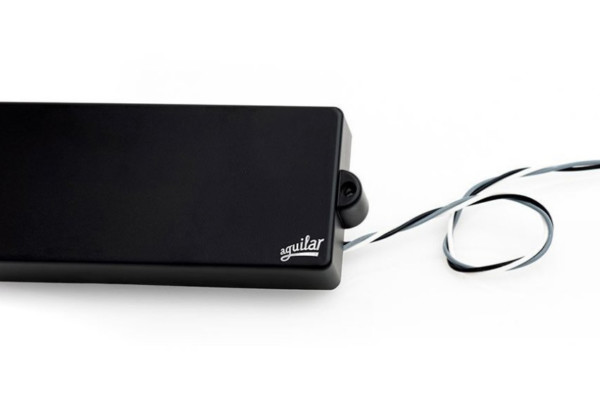The Lowdown with Dr. D.: EFX Questions for Upright Bass
Recently I got a series of questions from a upright bass player in Norway regarding amplification of the double bass and the use of electronic effects (EFX). Since I get these sorts of questions often, I thought I would print some of my thoughts here as part of the lowdown. If you have your own questions, feel free to send them via email or Facebook!
1) What kind of equipment do you mostly use to amplify your instrument?
It depends on the situation. In small jazz combo settings I generally use a transducer pickup. This is the most common type of upright bass pickup. Some are placed on the body of the bass, some on the bridge, and some in the bridge. I use one that is placed between the foot of the bridge and the body of the bass. Wherever they are placed, transducers are designed to pickup the vibrations of the wood of the instrument.
For traditional Rockabilly work I use the transducer mentioned above and also a “contact” pickup that is taped on the underside of the fingerboard. I use this to amplify the percussive elements involved in this type of playing. I mix these two signals with a dual channel preamp placed on my tailpiece.
In my Psychobilly band, I use a magnetic pickup and a fingerboard contact pickup. I mix these two signals with a dual channel preamp.
When I play with a Big Band, or in other situations where I need a great deal of volume but also a more “natural” upright bass sound, I use both a transducer and a magnetic pickup. Again, I mix these two signals with a dual channel preamp.
When I do my amplified solo work, which can often use extensive EFX, I primarily use the magnetic pickup. However, depending on the tune, I may use a combination of the transducer, magnetic and contact pickup, mixed appropriately.
Whatever the musical situation, I use a self-contained portable PA system, rather than a “bass amp.” It far out performs any bass amp I have ever used.
2) What kind of electronic effects do you use – or have you been using?
I have used both analog and digital EFX, many brands and many kinds. Currently, I use a rack-mounted guitar preamp/EFX unit and a looper. The EFX unit has distortion, pitch shifting, harmonization, phaser, chorus, wah, delay, etc… basically everything. I use it all….generally not all at one time, however. I also use a looper.
3) Have you experienced that some equipment is more convenient to use than other (regarding challenges with impedance, feedback-related challenges, trigging the effects, etc.)?
Yes. As I mentioned above, I use a Powered PA speaker, rather than a bass amp. Also, as I began to travel more and more with my rig (especially by plane), and played in a variety of venues, I found myself leaning toward rack mounted, midi controllable equipment for both reliability and ease of use.
In my opinion, feedback issues are more a condition of the instrument and the pickup than of any particular piece of electronic equipment. However, I do use a two channel compressor/limiter in my rack, which helps control feedback when using heavy distortion, etc.
4) Do you use the same methods for electronic effects in the studio – or do you rather use it in the phase of post-production?
In short: yes, I use the same setup live or in studio.
I am very particular about the sound my instrument produces. For me, EFX are not an embellishment of the tone, but rather a key component the sound, and therefore a part of the instrument.
Each computer program, or EFX unit, has unique capabilities and a unique color unto itself. These unique qualities mix with individual instruments in an individual way. As such, any EFX unit or program is as important as the acoustic instrument you play in creating your tone. For each patch I use I have spent hours refining it. I work out my sound as much as possible before hitting record.
I have based everything I do on live performance situations, so I do what I need to create the sound live first. For me, EFX are not optional, and are integral to my sound. They are too important to leave to post-production. Certainly they are too important to leave to someone else.
5) Do electronic effects affect your playing-style and/or technique?
Yes, particularly when I use the bow. Certain patches require that I emphasize bow articulation more aggressively or more subtly than if I were not using the EFX. Furthermore, as I am not as concerned with the acoustic projection of sound, I am able to place the strings closer to the fingerboard, should I so desire.
6) Are there any challenges related to effects and physical aspects (thinking about standing posture, etc.)?
Well, sometimes you need three feet! In all seriousness, however, this can usually be worked around with MIDI programming and forethought. However, for some tunes I do need both my feet simultaneously. For example, I may need to operate an expression pedal and also trigger the looper at the same time. In these cases I usually end up sitting on a stool.
If you stand and play, you do need to place your pedal board within easy reach of your feet and be able to balance for short periods of time on one foot. Beyond that, no, I have not noticed any significant challenges to standing posture.
7) Many bassplayers seems to think that the double bass player’s role is only to approach a “authentic” sound-ideal. Have you got any thoughts about this?
I think they should do what they want. Depending on the specific situation, they may, or may not, be correct in their thinking. This is a large question, which need to be clarified and specified to garner a more useful answer. For the artist, I don’t see in the limitations that this question pre-supposes. For the “gigger,” things are different.
For the gigger, the real question is one of appropriate, situational, performance practice. This include the repertory you are performing and the musical preferences of the people you are performing with. For example, I am not going to turn on my Dimebag Darrel distortion patch when I am playing with the Tommy Dorsey Band, or in a symphony orchestra. I could see where this would present a musical problem. I could also see myself getting fired!
As an artist, I do not see the same limitations, particularly when I am performing my own music, or as leader of a group. I am an upright bass player, if I wish to expand my musical palette to include sounds only possible with EFX, then I am going to do it… on the Upright bass. When it comes to artistic musical expression, I don’t believe in such arbitrary limits.
Dr. Donovan Stokes is on the faculty of Shenandoah University-Conservatory. Visit him online at www.donovanstokes.com and check out the Bass Coalition at www.basscoalition.com.




Great article. Helpful and insightful. Thanks for sharing your toughts.